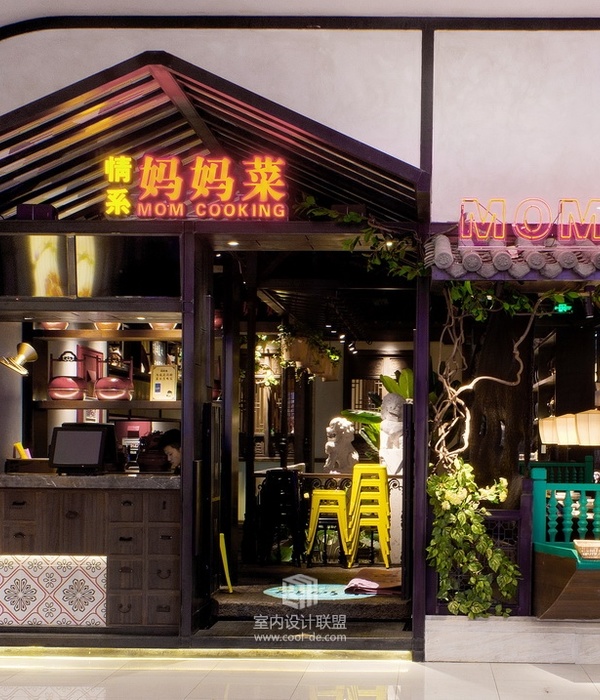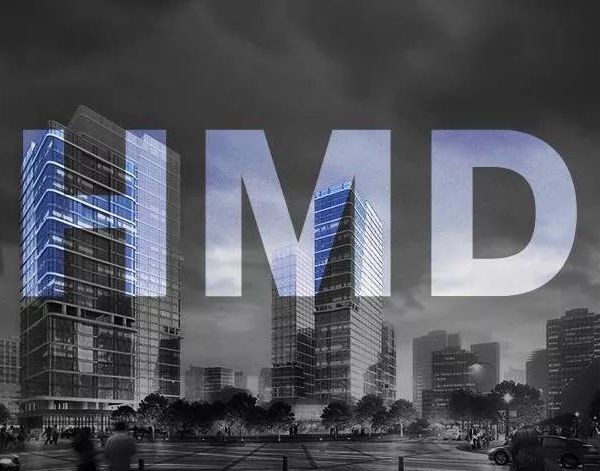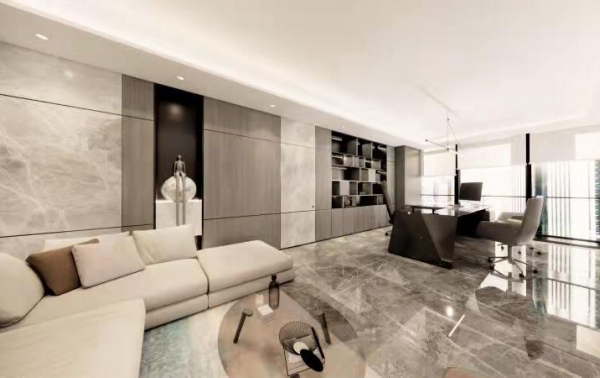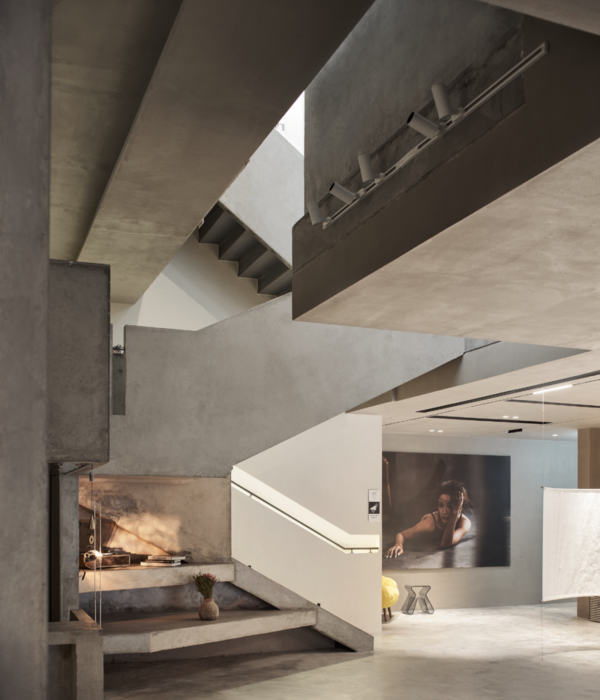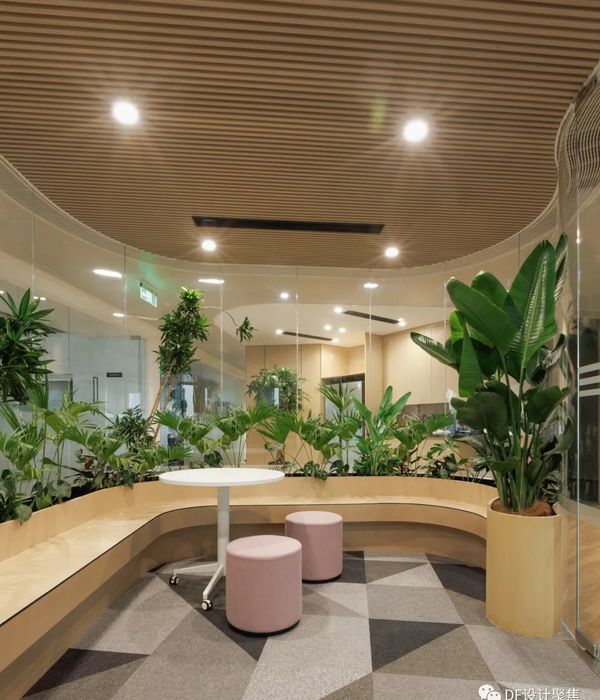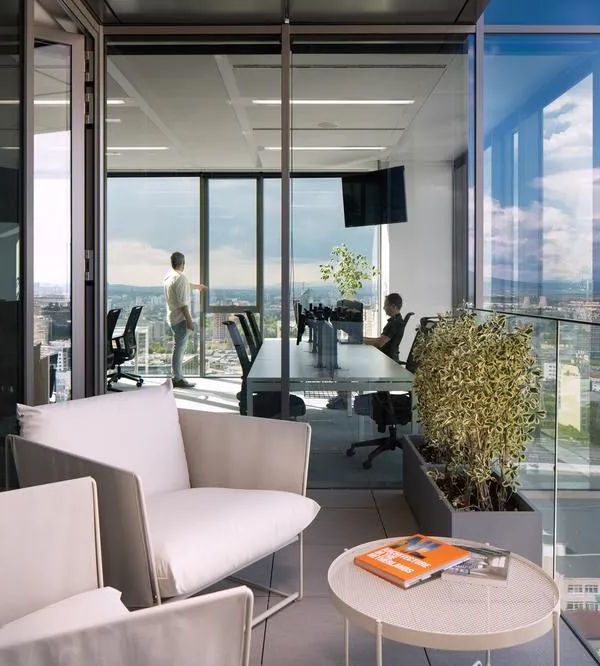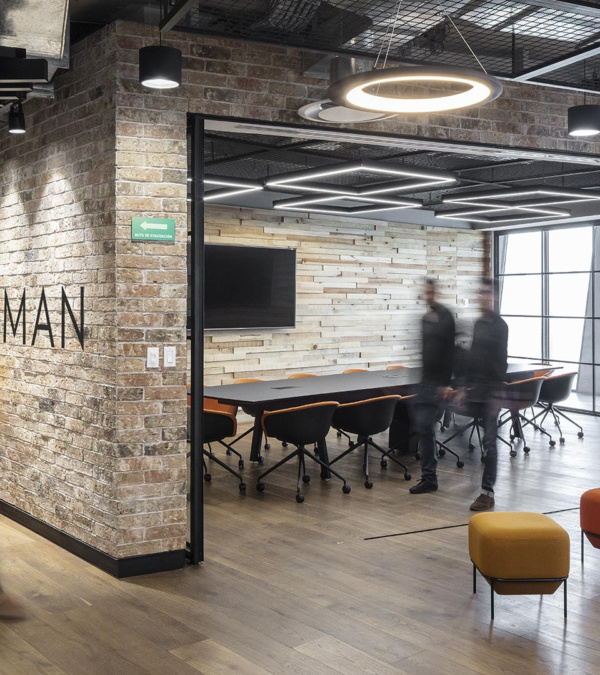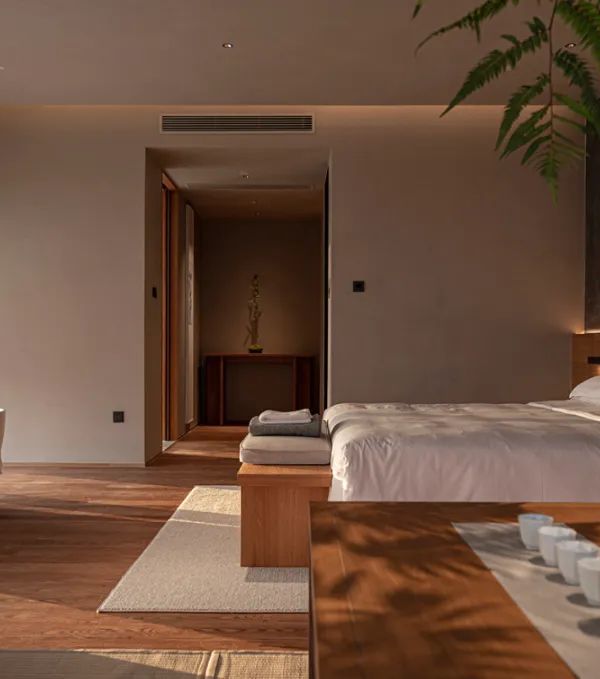The main intention of this project was to enhance and exaggerate the ‘as found’ spatial condition of the site with as little articulation of spatial gestures as necessary to house an architectural practice.
The given site was located in the stilt space of an apartment building, in the suburbs of Nasik, abutting a vast forest reserve along the Northern side. This necessitated that the compound wall of the building, along the length of the forest reserve, be taller, at least 8 to 9 feet in height. This setting of the site situated between a semi covered stilt on one side and a tall wall on the other side immediately gave the site an ambivalent character that was animated by a certain quality of light and shadow. A certain kind of cavernous space which is washed by light from the sky to create a somber, yet cheerful, atmosphere. Once this spatial quality was identified and discovered, the intention of the project was to enhance this spatial quality through careful and minimal spatial articulation.
The first decision with this regard was to render the entire space in one single material, that of the I.P.S (Indian Patented Stone). In order to create a sense of homogeneous space minor corrections were made to the existing elements of the space. For example, the existing columns, which were uneven in sizes and oriented in different directions, were corrected by making all of them as square columns. This creates a sense of weightiness, rhythm and order in space akin to the rock-cut cave temples found around Nasik. To that extent, a dark-grey tone and texture of IPS was chosen which closely resembled the blackness of basalt surfaces of the rock-cut cave temples.
The team of expert craftsmen that worked with IPS came from West Bengal. The technique of IPS flooring and walling was once a common technique in several parts of India, which today has become a specialised process, mastered by few craftsmen. To achieve a particular kind of surface finish, texture and sheen it takes careful and intuitive sense of not only applying the material but also specialised techniques of curing and polishing the surfaces -it is always particularly challenging to undertake the application of I.P.S on walls and ceilings, as it is more often than not used for flooring.
The second decision was to frame the drama of varying daylight conditions in the site: 1) Open court at the entrance; 2) studio space at the end of the site; 3) passage and informal waiting space between the entrance and the studio; 4) meeting space; 5) water court. In that sense, light here is treated as the next important material that creates a sense of drama inside the space through the day and through changing seasons.
The entrance court has a vast circular skylight, both to frame the sky but also to create a semi shaded gathering space. Besides the seating space is a landscaped court with dense vegetation which is also left open to the sky. Qualitatively speaking, the entrance court is designed keeping in mind the entrance court of houses typical to medieval, inner city settlements found across several Indian cities. A narrow passage with low ceiling height leads from the entrance court to the studio space and is marked by a narrow slit of skylight, which also adds to the linearity of the space, while making it feel more spacious.
Between the passage and the studio space there is a small informal waiting space which is once again punctuated by a smaller circular skylight. The studio space takes the full advantage of the setting by leaving the entire set-back skylit, between the building edge and the tall compound wall. The meeting space opens to a skylit water court, with pergolas over it and with the landscaped court on the other side, which forms the backdrop for the meeting space. The water court also opens towards the waiting space and the entrance court, making it a pivotal space of the design which is experienced from almost any part of the project.
These two intentions, to celebrate the given spatial condition and the drama of light and shadow, also coincided with the organizational and cultural intention of the studio. It was always an intention to establish an architectural office that has a horizontal and collaborative structure of work. The studio was also imagined as a space for various kinds of events for the city . To this extent, the third spatial intervention was to have an open and flexible floor plan, and an equally open section, that would allow the studio space to swell and contract to adapt to various kinds of events. Each space has a set of sliding-folding enclosing devices that sometimes take the form of doors and sometimes windows, which enable the entire studio space, from the entrance to the end of the studio, to be flexible and open for reconfiguration.
All furniture in the project is made in up-cycled Indian teak wood salvaged from the wada housing type belonging to the mercantile era of the city and the region. The furniture details are worked out with a careful understanding of the directionality of the grain of the teak wood and its tactile quality. The adjustable louvered windows in the meeting space also afford to have a more nuanced engagement with the weather and climatic conditions. The texture and tactile quality of the teak creates warm contrast to the grey I.P.S space.
The only other material that is used is black Basalt for the flooring of the entrance court and steps which adds another layer of tactility to the quality of space.
{{item.text_origin}}

